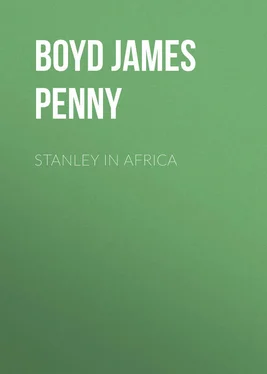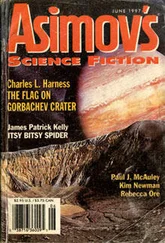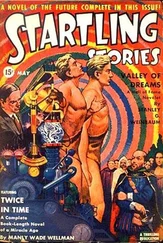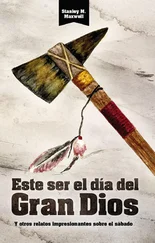James Boyd - Stanley in Africa
Здесь есть возможность читать онлайн «James Boyd - Stanley in Africa» — ознакомительный отрывок электронной книги совершенно бесплатно, а после прочтения отрывка купить полную версию. В некоторых случаях можно слушать аудио, скачать через торрент в формате fb2 и присутствует краткое содержание. Жанр: foreign_antique, foreign_prose, на английском языке. Описание произведения, (предисловие) а так же отзывы посетителей доступны на портале библиотеки ЛибКат.
- Название:Stanley in Africa
- Автор:
- Жанр:
- Год:неизвестен
- ISBN:нет данных
- Рейтинг книги:3 / 5. Голосов: 1
-
Избранное:Добавить в избранное
- Отзывы:
-
Ваша оценка:
- 60
- 1
- 2
- 3
- 4
- 5
Stanley in Africa: краткое содержание, описание и аннотация
Предлагаем к чтению аннотацию, описание, краткое содержание или предисловие (зависит от того, что написал сам автор книги «Stanley in Africa»). Если вы не нашли необходимую информацию о книге — напишите в комментариях, мы постараемся отыскать её.
Stanley in Africa — читать онлайн ознакомительный отрывок
Ниже представлен текст книги, разбитый по страницам. Система сохранения места последней прочитанной страницы, позволяет с удобством читать онлайн бесплатно книгу «Stanley in Africa», без необходимости каждый раз заново искать на чём Вы остановились. Поставьте закладку, и сможете в любой момент перейти на страницу, на которой закончили чтение.
Интервал:
Закладка:
The next station was Manyanga, a destination indeed, for here is a formidable cataract, which defies the light steamers of the expedition, and there will have to be another tedious portage to the open waters of Stanley Pool. It was now May 1, 1881. Manyanga is 140 miles from Vivi. The natives were friendly but adverse to founding a trading town in their midst. Yet Stanley resolved that it should be a station and supply point for the 95 miles still to be traversed to Stanley Pool. He fell sick here, of fever, and lay for many days unconscious. Such was his prostration, when he returned to his senses, that he despaired of recovery, and bade his attendants farewell.
In the midst of hardship which threatened to break his expedition up at this point, he was rejoiced to witness the arrival of a relief expedition from below, other boats, plenty of provisions and a corps of workmen. Then the site of the town of Manyanga was laid out, and a force of men was employed to build a road around the cataract and haul the boats over it. This point is the center of exchange for a wide territory. Slaves, ivory, rubber, oil, pigs, sheep, goats and fowls are brought in abundance to the market, and it is a favorite stopping-place for caravans from the mouth of the Congo to Stanley Pool. But the natives are crusty, and several times Stanley had to interfere to stop the quarrels which arose between his followers and the insolent market people. At length the town was fortified, provisioned and garrisoned, and the expedition was on its way to Stanley Pool, around a portage of six miles in length, and again into the Congo; then up and up, with difficult navigation, past the mouths of inflowing rivers, around other tedious portages, through quaint and curious tribes, whose chiefs grow more and more fantastic in dress and jealous of power, till they even come to rival that paragon of strutting kingliness, the famed Mtesa of Uganda. Though not hostile, they were by no means amiable, having made a recent cession of the country on the north of the Congo to French explorers. King Itsi, or Ngalyema, was among the most powerful of them and upon him was to turn the fortune of the expedition in the waters of the upper Congo. Stanley made the happy discovery that this Ngalyema was the Itsi, of whom he had made a blood brother on his descent of the river, and this circumstance soon paved the way to friendship and protection, despite the murmurs and threats of neighboring chiefs.
The last king of note, before reaching Stanley Pool, was Makoko, who favored the breaking of rocks and the cutting down of trees in order to pass boats over the country, but who wanted it understood that his people owned the country and did not intend to part with their rights without due consideration. Scarcely had a treaty been struck with him when Stanley was informed that Ngalyema was on his track with two hundred warriors, and determined to wipe out his former negotiations with blood. Already the sound of his war-drums and the shouts of his soldiers were heard in the distance. Stanley ordered his men to arm quickly and conceal themselves in the bush, but to rush out frantically and make a mock attack when they heard the gong sounding. Ngalyema appeared upon the scene with his forces and informed Stanley that he could not go to Kintamo, for Makoko did not own the land there. After a long talk, the stubborn chief left the tent in anger and with threats of extermination on his lips; but as he passed the inclosure, he was attracted by the gong, swinging in the wind.
“What is this?” he asked.
“It is fetish,” replied Stanley.
“Strike it; let me hear it,” he exclaimed.
“Oh, Ngalyema, I dare not; it is the war fetish.”
“No, no, no! I tell you to strike.”
“Well, then!”
Here Stanley struck the gong with all his force, and in an instant a hundred armed men sprang from the bush and rushed with demoniac yells upon the haughty chief and his followers, keeping up all the while such demonstrations as would lead to the impression that the next second would bring an annihilating volley from their guns. The frightened king clung to Stanley for protection. His followers fled in every direction.
“Shall I strike the fetish again?” inquired Stanley.
“No, no! don’t touch it!” exclaimed the now subdued king; and the broken treaty was solemnized afresh over a gourd of palm-wine. Makoko was jolly over the discomfiture of his powerful rival.
These Kintamo people, sometimes called the Wambunda, now gave to Stanley some 78 carriers and greatly assisted him in making his last twelve miles of roadway and in conveying his boats and wagons over it. The expedition was now in sight of Stanley Pool, beyond the region of the cataracts, and at the foot of navigation on the upper Congo. It was now Dec. 3, 1881, the boats were all brought up and launched in smooth water, a station was founded, and the expedition prepared for navigation on that stupendous stretch of water between Stanley Pool and Stanley Falls.
The Kintamo station was called Leopoldville, in honor of king Leopold of Belgium, European patron of the Congo Free State, and to whose generosity more than that of any other the entire expedition was due. It was the most important town thus far founded on the Congo, for it was the center of immense tribal influence, a base of operations for 5000 miles of navigable waters, and a seat of plenty if the chiefs remained true to their concessions. It was therefore well protected with a block-house and garrison, while the magazine was stocked with food and ammunition. Gardens were laid out and planted, stores were erected in which goods were displayed, and soon Stanley had the pleasure of seeing the natives bringing ivory and marketing for traffic. The stay of the expedition at Leopoldville was somewhat lengthy and it was April, 19, 1882, before it embarked for the upper Congo, with its 49 colored men, four whites, and 129 carrier-loads of equipments.
The boats passed Bamu Island, 14 miles in length, which occupies the center of Stanley Pool, the stream being haunted by hippopotami and the interior of the island by elephants and buffaloes, adventures with which were common. The shores are yet bold and wooded, monkeys in troops fling themselves from tree to tree, white-collared fish eagles dart with shrill screams across the wide expanse of waters, and crocodiles stare wildly at the approaching steamers, only to dart beneath them as they near and then to reappear in their wake. Says Stanley, of this part of the river:
“From the Belize to Omaha, on the line of the Mississippi, I have seen nothing to excite me to poetic madness. The Hudson is a trifle better in its upper part. The Indus, the Ganges, the Irrawaddy, the Euphrates, the Nile, the Niger, the La Platte, the Amazon – I think of them all, and I can see no beauty on their shores that is not excelled many fold by the natural beauty of this scenery, which, since the Congo highlands were first fractured by volcanic caprice or by some wild earth-dance, has remained unknown, unhonored and unsung.”
From Stanley Pool to Mswata, a distance of 64 miles, the river has a width of 1500 yards, a depth sufficient to float the largest steamer, and heavily wooded banks. The people are of the Kiteké tribes and are broken into many bands, ruled by a high class of chieftains, who are not averse to the coming of the white man. The Congo receives an important tributary near Mswata, called the Kwa. This Stanley explored for 200 miles, past the Holy Isle, or burial place of the Wabuma kings and queens, through populous and pleasantly situated villages and onward to a splendid expanse of water, which was named Lake Leopold II.
It was during his exploration of the Kwa that Stanley fell sick; and on his return to Mswata, was compelled to return to Leopoldville and so back to Manyanga, Vivi, and the various stations he had founded, to the coast, whence he sailed for Loando, to take a steamer for Europe. The three-year service of his Zanzibaris was about to expire; and when he met at Vivi, the German, Dr. Peschnel-Loeche, with a large force of men and a commission to take charge of the expedition, should anything happen to him (Stanley), he felt that it was in the nature of a reprieve.
Читать дальшеИнтервал:
Закладка:
Похожие книги на «Stanley in Africa»
Представляем Вашему вниманию похожие книги на «Stanley in Africa» списком для выбора. Мы отобрали схожую по названию и смыслу литературу в надежде предоставить читателям больше вариантов отыскать новые, интересные, ещё непрочитанные произведения.
Обсуждение, отзывы о книге «Stanley in Africa» и просто собственные мнения читателей. Оставьте ваши комментарии, напишите, что Вы думаете о произведении, его смысле или главных героях. Укажите что конкретно понравилось, а что нет, и почему Вы так считаете.












